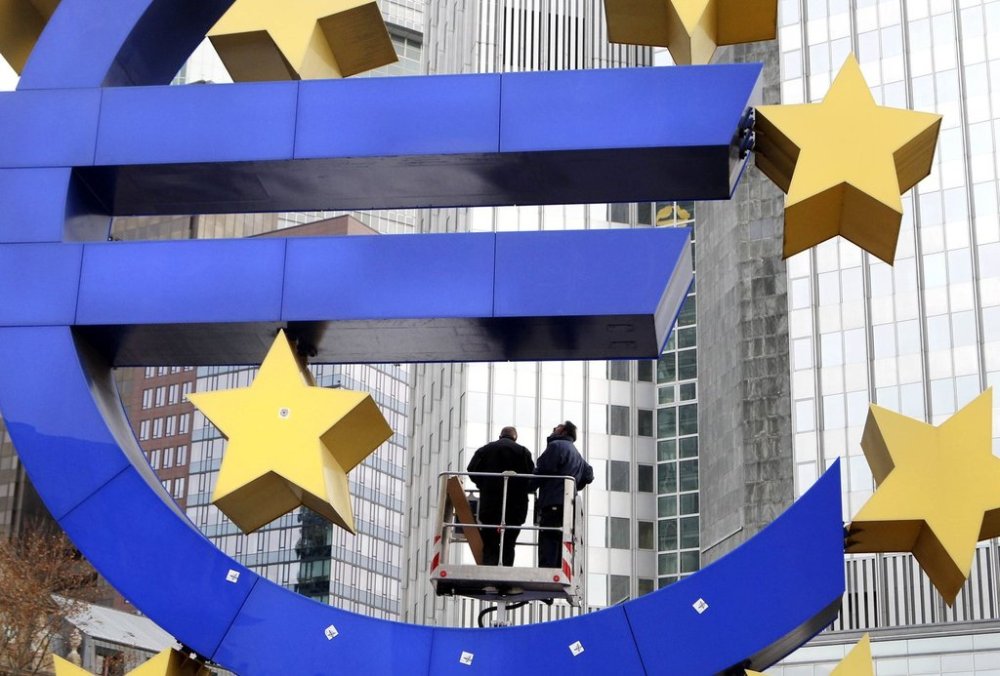European economy sees growth of only 0.1% as scramble to get ahead of US tariffs goes into reverse
Advertisement
Read this article for free:
or
Already have an account? Log in here »
To continue reading, please subscribe:
Monthly Digital Subscription
$0 for the first 4 weeks*
- Enjoy unlimited reading on winnipegfreepress.com
- Read the E-Edition, our digital replica newspaper
- Access News Break, our award-winning app
- Play interactive puzzles
*No charge for 4 weeks then price increases to the regular rate of $19.00 plus GST every four weeks. Offer available to new and qualified returning subscribers only. Cancel any time.
Monthly Digital Subscription
$4.75/week*
- Enjoy unlimited reading on winnipegfreepress.com
- Read the E-Edition, our digital replica newspaper
- Access News Break, our award-winning app
- Play interactive puzzles
*Billed as $19 plus GST every four weeks. Cancel any time.
To continue reading, please subscribe:
Add Free Press access to your Brandon Sun subscription for only an additional
$1 for the first 4 weeks*
*Your next subscription payment will increase by $1.00 and you will be charged $16.99 plus GST for four weeks. After four weeks, your payment will increase to $23.99 plus GST every four weeks.
Read unlimited articles for free today:
or
Already have an account? Log in here »
FRANKFURT, Germany (AP) — Europe’s economy barely grew in the April-June quarter as frantic earlier efforts to ship goods ahead of new U.S. tariffs went into reverse and output fell for the continent’s biggest economy, Germany.
Gross domestic product grew an anemic 0.1% compared to the previous quarter in the 20 countries that use the euro currency, the EU statistics agency Eurostat reported Wednesday. Growth was 1.4% over the same quarter a year ago.
And prospects are mediocre for the coming months, given the 15% tariff, or import tax, imposed on European goods in the U.S. under the EU-U.S. trade deal announced Sunday. The higher tariff will burden European exports with higher costs to either be passed on to U.S. consumers or swallowed in the form of lower profits.

The economy sagged after stronger than expected 0.6% growth in the first quarter, a figure inflated by companies trying to move product ahead of U.S. President Donald Trump’s additional tariff onslaught that was announced April 2, two days after the first quarter ended.
Output fell 0.1% in Germany and Italy, while growth of 0.3% in France was boosted by a rise in auto and aircraft inventories while domestic demand was otherwise stagnant. That left Spain as the only strong performer among the four largest eurozone economies at 0.7%
“With the 15% U.S. universal tariff likely to subtract around 0.2% from the region’s GDP, growth is likely to remain weak in the rest of this year,” said Franziska Palmas, senior Europe economist at Capital Economics.
Germany’s economy remains roughly the same size as it was before the pandemic six years ago, as its export-dominated business sector struggles with multiple issues including stronger competition from China, a lack of skilled workers, higher energy prices, lagging infrastructure investment, and burdensome regulation and bureaucracy.
Economist Palmas said that Germany “is likely to be hit harder than other major economies by tariffs and continue to struggle this year” before increased government spending from the new government under Chancellor Friedrich Merz, aimed at making up the infrastructure gap, starts to boost the economy in 2026.
On Wednesday, Germany’s Cabinet approved a draft 2026 budget that foresees a second consecutive year of record government investment in priorities such as modernizing transport infrastructure, building homes, security and digitization. Spending is set to rise to 126.7 billion euros ($146.2 billion) next year from 115.7 billion euros in 2025.
“Our top priority is to secure jobs and ensure new economic strength,” Finance Minister Lars Klingbeil said.
___
Geir Moulson contributed from Berlin.

